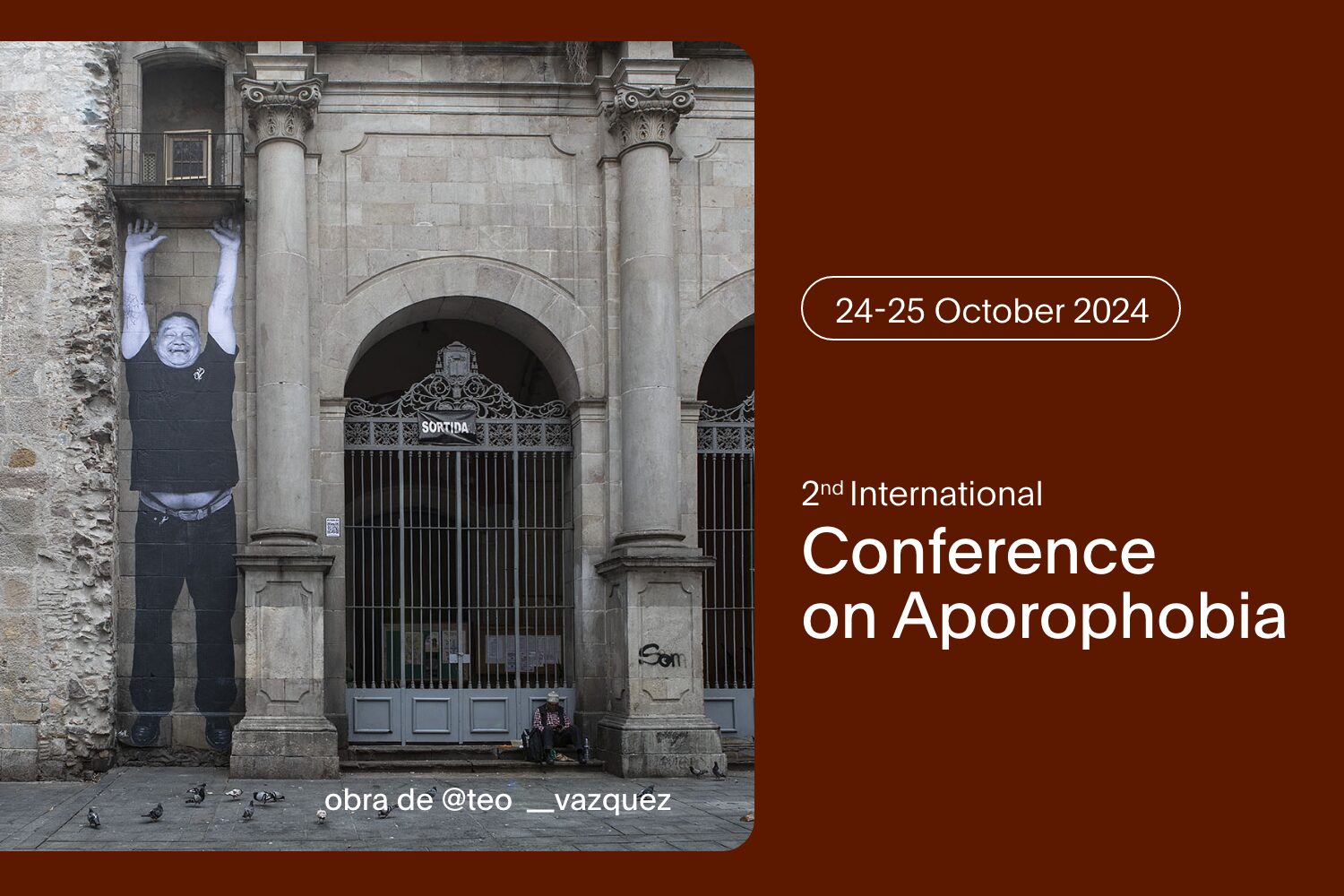On 24 and 25 October, the IQS campus in Barcelona will host the 2nd edition of the International Conference on Aporophobia, an event that will bring together experts from different disciplines in order to address one of the greatest social challenges of our time: aporophobia, a term defined as the contempt, fear, and rejection of poor people.
Faithful to the commitment it launched last year, the Conference once again aims to serve as a space for reflection to share experiences and seek solutions to this phenomenon that aggravates poverty, stigma, and other forms of discrimination – to the point of becoming the direct or indirect reason for many of the hate crimes that are committed in Spain.
In concrete, the role of aporophobia in these types of crimes, the legal tools to tackle them, and how they are handled by legal and police authorities will be the focus of one of the main roundtables at this year’s edition.
The conference has been organized by IQS with support from the “la Caixa” Foundation and features participation by the Pere Tarrés-URL Foundation, Cáritas, the Assís Foundation, the Arrels Foundation, the Christianity and Justice Foundation, the Borja Institute of Bioethics-URL, the Vidal i Barraquer Foundation-URL, ESADE-URL, ESDI-URL, the Blanquerna-URL Observatory, and La Salle-URL. Attendance is free, but spots are limited and pre-registration is required.
Multidisciplinary approach to an urgent problem
According to a report on the evolution of hate crimes in Spain in 2023, Spanish Law Enforcement Agencies investigated 2,268 criminal hate incidents and offences, representing an increase of 21.3% compared to 2022. However, how many of them are directly or indirectly related to aporophobia? What role do law enforcement and the courts play?
One of the highlights of this year’s edition will be the roundtable “Legal and police approaches to hate crimes committed due to aporophobia,” which will bring together leading experts in the field of law and security including Mª Jesús Raimundo Rodríguez, Public Prosecutor with the Hate Crimes and Discrimination Unit, Tomás Fernández Villazala, Director of the National Office for the Fight against Hate Crimes, and Manuel Serrano González, Chief Inspector of the National Police. Moderated by Míriam Feu, from Cáritas, the speakers at this roundtable will explore and discuss the link between aporophobia and hate crimes, analysing the legal and policing tools that exist to combat this form of discrimination.
This will not be the only point of view presented. As with the first edition, the International Conference on Aporophobia will be structured around a full programme that covers different approaches: from theoretical and academic analysis to the discussion of practical cases and experiences in the social, economic, and legal fields.
On this occasion, the event will feature an opening lecture by renowned Professor Aaron Reeves from the London School of Economics and Oxford University. Entitled “Common people: how elites and the working class navigate the symbolic market of being ordinary,” this speech will address social inequality and its impact on health and wellbeing, and mark the start of two days of reflection and debate.
In addition, the conference will offer a total of 12 parallel sessions during the two days of the event. The sessions scheduled for 25 October include “Aporophobia and loneliness,” which will analyse the implications of this phenomenon in adolescence and old age; “Aporophobia: mental and physical health,” which will present the work of the ESMES mental health team for the homeless, a pioneering experience in Catalonia; and “Aporophobia: migration, social exclusion, and the logic of the common good.”
As a new feature, some pre-conference activities have been organized this year to raise public awareness about aporophobia and create spaces for reflection, such as a discussion on the reality of homeless people, the presentation of a game about quality of life and discrimination, and a guided tour of the Raval neighbourhood in Barcelona to make social exclusion visible.
A final debate and a manifesto will serve as the culmination of the second edition of this year’s conference, increasingly recognized as a pioneering space to share experiences, produce knowledge, and propose strategies to effectively combat aporophobia through a comprehensive and multidisciplinary approach.










